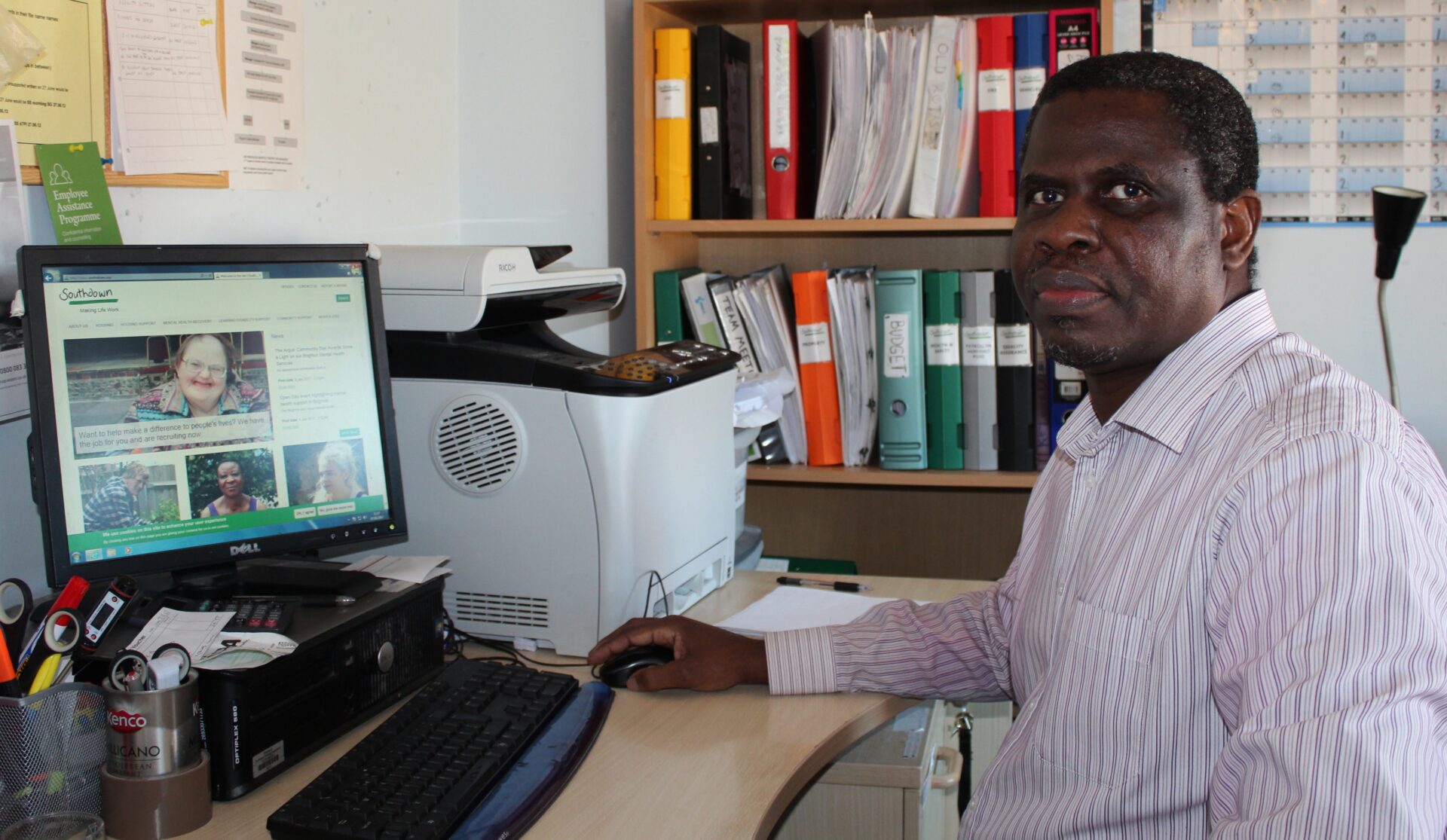“People with learning disabilities are just people like everybody else”
I come from a teaching background! I was teaching and also studying for a master’s degree where part of my thesis focused on inclusion in education.
At the end of my master’s, I had started enjoying working as a support worker for people with learning disabilities. I wanted a change.
I joined Southdown in 2002. I’ve been the Service Manager at a supported living scheme for two clients who are on the autistic spectrum for close to two years now.
They have very high support needs and need two-to-one support out in the community because of the nature of their behaviour and because we want to promote choice, independence, and access to the community.
They share this house with one client using the upper part of the building, and the other using the lower part. They have their own private spaces and lounges but do share a communal kitchen and utility room. They like doing their own activities – they are individuals.
It’s very important to have good working relationships with our Positive Behaviour Support team, day centre key workers, OTs, doctors, and parents, because we need consistency in the support we provide. Communication is key.
Sometimes I’m hands-on, supporting the clients and getting started with their morning routines. For example, making a tea for them in bed, running their bath, and supporting them in making their breakfast. I will also support them by getting their medication and preparing them for their activities that day.
I think it’s really important because it means I can have a feel for our clients’ support needs and have an understanding, and relate, to any difficulties my staff might come across.
Staff need support too – they are integral to our service. I am available for them. We do supervisions and appraisals, and we have conversations around their own support and welfare.
Training for staff is very good. We also offer general shadowing too which gives people a lot of confidence before they can support the clients on their own – they’re not thrown in the deep end.
We need to be very closely tuned to our clients’ needs so we can avoid situations that could cause them anxieties.
You have to have people skills, be able to empathise, be kind, and be open-minded. With a huge dose of patience and willingness to learn! If you don’t have those skills, even if you have the relevant qualifications, then you might struggle. You need that human touch to be able to function, and an ability to change depending on the people you are supporting. You need to be really flexible.
Working in social care is really fun and rewarding. It’s fun because you do a lot of things with clients which you might not always be able to do. And rewarding because you see someone engage in activities they couldn’t do without support, like swimming and bowling. It really amplifies their quality of life. Support work is very meaningful.
People with learning disabilities are just people like everybody else. They’ve got aspirations, goals, interests, and pastimes. They may not be able to access them easily because of limitations, but if there are more of us who are willing to share our lives with people with learning disabilities, they can then do things because they have support to do it. That enhances their quality of life. They see themselves as meaningful and their self-esteem increases.
I’ve learnt to be positive and to be hopeful. Once you’ve got those two, you can face tomorrow. You have a reason for tomorrow. You know things are going to be okay.
That feeling I’ve made a difference to someone’s life is a booster to morale and to building up my own personality and outlook on life.
When our clients are happy, our staff are happy, and I’m the happiest manager around! We cherish those moments. Just putting a smile on a client or staff member’s face, means I go home with a spring in my step – I know I’ve made a difference in somebody’s life.
We provide care and support for over 220 people with learning disabilities, 60% of whom have additional complex needs, either behaviour support needs and/or physical disabilities. To enable us to provide the very best care and support for people with learning disabilities, we have a specialist focus on improving people’s quality of life and reducing challenging behaviour through Positive Behaviour Support (PBS).
Southdown manages supported living services across Sussex. Supported living is where an individual owns or rents their own home and has control over the support they get and how they live their lives. Accommodation and support is provided separately. It can be very different for different people. For one person, supported living might be a few hours of support a week to enable them to live independently by themselves in a rented flat. For another it may be around the clock support in a shared house or self-contained flat.
